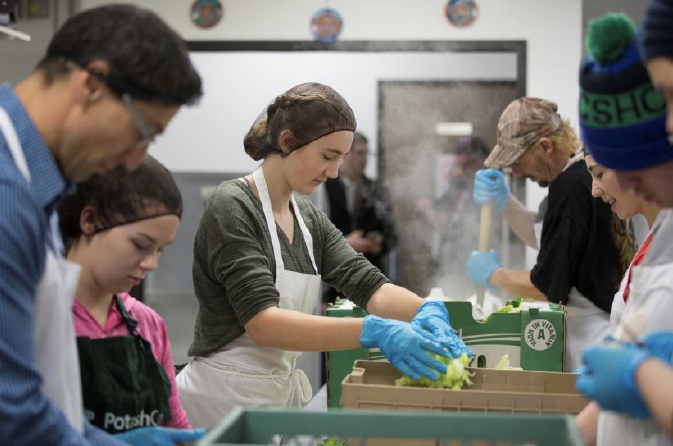There’s nothing like the persistent “Why?” of children to make a person question the way things are as they are. Sometimes the innocence of the why is cute and answers simple—if not totally accurate. I remember one of my children asking why our noses don’t point nostrils up. My answer: “So we don’t drown when it rains.” At the time, it seemed like a pretty good answer, more credible than, “Because that’s how God made us.” Or maybe I had used that as my go-to answer one too many times so felt compelled to come up with something new after a seemingly endless string of why? why? why? why? sounding like the seagulls in Finding Nemo.
Either way, there seems to be an instinctive drive within us to understand why, to make sense of the world around us so it doesn’t appear as utter chaos.
However, there appears to be less of an instinctive drive within us to seek the answer, as illustrated by my less-than-genius response to the nostril question, or by the fact that we have so many sayings, traditions or idioms for which we don’t understand their meaning or origins—both in secular society in our Catholic faith.
The Together in Faith and Action (TFAC) committee at Greater Saskatoon Catholic Schools—a standing committee of the division’s Board of Education—is seeking to answer a why for themselves.
Since its inception, one of the pillars of the committee’s work has been to put our faith into action (I know, it’s kinda obvious in the name). Consistent with the board’s vision of being
rooted in faith, growing in knowledge and reaching out to transform the world, all staff and students are encouraged to put their faith into action.
And people have responded. Not that undertaking social justice initiatives is an entirely new thing for the school division; it has always been an important dimension of Catholic education. But the commitment breathed a renewed vigour into activities and prompted new ones.
Division-wide partnerships with local organizations like the Saskatoon Food Bank and Learning Centre or the Friendship Inn were strengthened. One example is the Pool Our Love initiative with the Food Bank that has schools collect specific food items that are most needed and literally fill a paddling pool with food during the season of Lent.
Smaller, more personal projects popped-up, making it clear to staff and students alike that small actions can make a big difference. Things like knitting scarves and leaving them for anyone who needs some warmth on a cold winter’s day, volunteering at the Friendship Inn, student-led fundraising for organizations like Hope for Malawi… the list is longer than space here permits.
After much discernment, committee members felt there was a need to further strengthen the awareness and appreciation of why we were doing these things. “After time, things tend to become habit,” said Trustee Tim Jelinski, chair of the TFAC committee. “So, we wanted to take some time to refocus, to make sure that we aren’t doing things just because they have always been done that way, but to make sure we all understand the reason we believe social justice is so important to the life of the church.”
Jelinski pointed out that motivation is key to understanding why. “Saying ‘small acts can make a big difference’ only gives part of the picture. We need to go further and clarify that it is small acts done out of love that will make the biggest difference.”
In Catholic social doctrine, it is impossible to separate motivation and action—or faith and works, as St. James said (cf. James 2:14-26). Catholic social teaching has been refined and articulated well by Pope Leo XIII, Pope St. John Paul II and most recently Pope Francis.
As Catholics, if we don’t see the inherent dignity of the person—that each and every individual we seek to serve is made in the image and likeness of God and is an adopted son or daughter through Christ, our brother—we risk missing the mark with our service. Aspects of social justice like solidarity and subsidiarity become increasingly empty the more we separate them from loving God and others. We need to recognize that our service to others is a work of evangelization that seeks eternal salvation of the other as the ultimate good.
It can be easy to get caught up in the action of washing feet. It is essential that we pause and remember why Jesus washed the feet of the apostles. Why are we called to follow his example? So that we may one day share in his glory—together.
Derrick Kunz is the communications consultant at Greater Saskatoon Catholic Schools.







